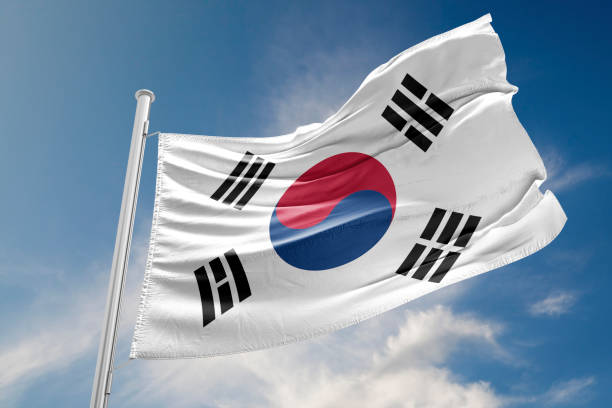Foreign News
UN Agencies Say 1 in 10 Babies Born Early in 2022

The United Nations agencies said that an estimated 13. 4 million babies were born early before 37 full weeks of pregnancy in 2020, which was around one in 10 of all live births.The report was according to a detailed study published in the Lancet by authors from the World Health Organization (WHO), UNICEF as well as the London School of Hygiene and Tropical Medicine.“Since prematurity is the leading cause of death in children’s early years, there is an urgent need to strengthen both care for preterm babies as well as prevention efforts.“Particularly maternal health and nutrition so as to improve childhood survival.“For those who live, preterm birth also significantly increases the likelihood of suffering major illnesses, disability and developmental delays, and even chronic diseases as adults like diabetes and heart conditions.“As with other major trends relating to maternal health, no region of the world has significantly reduced rates of preterm births over the last decade.“The annual global rate of reduction in preterm births between 2010 and 2020 was just 0.14 pee cent,’” it said.Dr Anshu Banerjee, Director of Maternal, Newborn, Child and Adolescent Health and Ageing at WHO said that preterm babies were especially vulnerable to life-threatening health complications, thus need special care and attention.Banerjee said that these numbers showed an urgent need for serious investment in services available to support them and their families as well as a greater focus on prevention.He said that the main issue was ensuring access to quality health care before and during every pregnancy.The report said that at the national, regional, and global estimates of preterm births in 2020, with trends from 2010: a systematic analysis, provided global, regional and country estimates.Similarly, trends for preterm births between 2010 and 2020 revealed large disparities between regions and countries.It said that around 65 per cent of preterm births in 2020 occurred in sub-Saharan Africa and Southern Asia, where over 13 per cent babies were born preterm.The report listed the rates in the worse affected countries to include: Bangladesh 16.2 per cent, Malawi 14.5 per cent and Pakistan 14.3 per cen.These were three or four times higher than those in the least affected countries like Serbia 3.8 per cent, Moldova 4 per cent and Kazakhstan 4.7 per cent.According to it, preterm birth is not just an issue in low and middle-income countries, however, the data shows clearly that it affects families in all parts of the world.The report said that the rates of 10 per cent or higher occured in some high income countries such as Greece 11.6 per cent and the United States of America 10 per cent.“Maternal health risks, such as adolescent pregnancy, infections, poor nutrition, and pre-eclampsia, are closely linked to preterm births.“Quality antenatal care is critical to detect and manage complications, to ensure accurate pregnancy dating through early ultrasound scans and if needed, to delay labour through approved treatments,” it said.
Foreign News
No talk of Ceasefire Deal Between Turkey, US-backed SDF in Northern Syria – Turkish Official

There is no talk of a ceasefire deal between Turkey and the U.S.-backed Syrian Democratic Forces (SDF) in northern Syria, contrary to a U.S. announcement on the issue, a Turkish defence ministry official said on Thursday.
The official was responding to comments from State Department spokesperson Matthew Miller, who said a ceasefire between Turkey and the SDF around the northern Syrian city of Manbij has been extended until the end of this week.
“As Turkey, it is out of the question for us to have talks with any terrorist organisation.
“The (U.S.) statement must be a slip of the tongue,” the defence ministry official, who was speaking on condition of anonymity, told reporters.
Washington brokered an initial ceasefire between Turkey-backed Syrian rebels and the SDF forces last week after fighting that broke out earlier this month as rebel groups advanced on Damascus and overthrew Bashar al-Assad.
The SDF is an ally in the U.S. coalition against Islamic State militants.
It is spearheaded by the YPG, a group that Ankara sees as an extension of the Kurdistan Workers Party (PKK) militants who have fought the Turkish state for 40 years.
Turkey regards the PKK, YPG and SDF as terrorist groups. The U.S. and Turkey’s Western allies list the PKK as terrorist, but not the YPG and the SDF.
When asked if Ankara was considering another ground operation into northern Syria, the official said that Turkey still sees a threat to its borders from north Syria.
“Our preparations and precautions as part of the fight against terrorism will continue until the PKK/YPG lays down its arms and its foreign fighters leave Syria,” the official said.
Since 2016, Turkey has mounted four military operations in northern Syria, citing national security threats.
Turkey believes that forces of the Syrian National Army paramilitary group which it backs will “liberate” YPG-controlled areas in northern Syria, the official said, signalling that Turkey does not plan an imminent operation into the region by its military.
The SDF have close ties with Western countries including the U.S. and France. Recently, France said the political transition in Syria needed to ensure that the SDF was represented. (Reuters/NAN)
Foreign News
President Yoon Banned from Leaving South Korea

The South Korean Government ordered an overseas travel ban on President Yoon Suk Yeol.The South Korean news agency Yonhap reported on Monday that the travel ban is due to the ongoing investigation into Yoon, which involves suspicion of high treason.Yoon unexpectedly imposed martial law on his country last Tuesday night, but hours later, after massive political resistance, he repealed the order.
On Saturday evening, a motion by the opposition to impeach the president in parliament failed. However, public pressure against the 63-year-old continues. (dpa/NAN)Foreign News
Israel Threatens to Expand War if Hezbollah Truce Collapses

Israel threatened on Tuesday to return to war in Lebanon if its truce with Hezbollah collapses and said this time its attacks would go deeper and target the Lebanese state itself, after the deadliest day since the ceasefire was agreed last week.
In its strongest threat since the truce was agreed to end 14 months of war with Hezbollah, Israel said it would hold Lebanon responsible for failing to disarm militants who violated the truce.
“If we return to war we will act strongly, we will go deeper, and the most important thing they need to know: that there will be no longer be an exemption for the state of Lebanon,” Defence Minister Israel Katz said.
“If until now we separated the state of Lebanon from Hezbollah… it will no longer be (like this),” he said during a visit to the northern border area.
Despite last week’s truce, Israeli forces have continued strikes in southern Lebanon against what they say are Hezbollah fighters ignoring the agreement to halt attacks and withdraw beyond the Litani River, about 30 km (18 miles) from the frontier.
On Monday, Hezbollah shelled an Israeli military post, while Lebanese authorities said at least 12 people were killed in Israeli airstrikes on Lebanon.
Katz called the Hezbollah attack “the first test” and described Israel’s strikes as a strong response.
The Beirut government must “authorise the Lebanese army to enforce their part, to keep Hezbollah away beyond the Litani, and to dismantle all the infrastructure,” Katz said.
“If they don’t do it and this whole agreement collapses then the reality will be very clear.”
Top Lebanese officials urged Washington and Paris to press Israel to uphold the ceasefire, after dozens of military operations on Lebanese soil that Beirut has deemed violations, two senior Lebanese political sources told Reuters on Tuesday.
The sources said caretaker Prime Minister Najib Mikati and Speaker of Parliament Nabih Berri, a close Hezbollah ally who negotiated the deal on behalf of Lebanon, spoke to officials at the White House and French presidency late on Monday.
Mikati, quoted by the Lebanese news agency, said that diplomatic communications had intensified since Monday to stop Israeli violations of the ceasefire.
He also said a recruitment drive was under way by the Lebanese army to strengthen its presence in the south.
U.S. State Department spokesperson Matt Miller told reporters on Monday that the ceasefire “is holding” and that the U.S. had “anticipated that there might be violations”.
Neither the French presidency nor the foreign ministry were immediately available to comment.
French Foreign Minister Jean-Noel Barrot spoke to his Israeli counterpart Gideon Saar on Monday, saying both sides should adhere to the ceasefire.
The truce came into effect on Nov. 27 and prohibits Israel from conducting offensive military operations in Lebanon, while requiring Lebanon to prevent armed groups including Hezbollah from launching attacks on Israel.
It gives Israeli troops 60 days to withdraw from south Lebanon.
A mission chaired by the United States is tasked with monitoring, verifying, and helping enforce the truce, but it has yet to begin work.
Berri on Monday called on the mission to “urgently” ensure Israel halts its breaches, saying Beirut had logged at least 54 Israeli violations of the ceasefire so far.
Israel has said its continued activity in Lebanon is aimed at enforcing the ceasefire.
Lebanon’s Mikati met in Beirut on Monday with U.S. General Jasper Jeffers, who will chair the monitoring committee.
Two sources familiar with the matter told Reuters that France’s representative to the committee, General Guillaume Ponchin, would arrive in Beirut on Wednesday and that the committee would hold its first meeting on Thursday.
“There is an urgency to finalise the mechanism, otherwise it will be too late,” the source said, referring to Israel’s gradual intensification of strikes even with the truce in place. (Reuters/NAN)


















